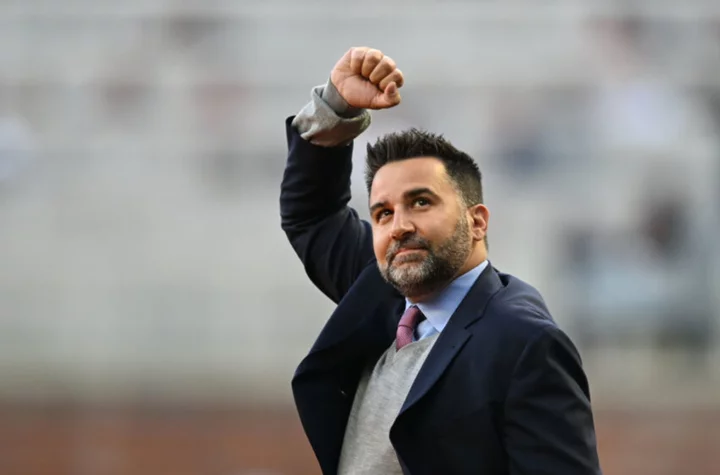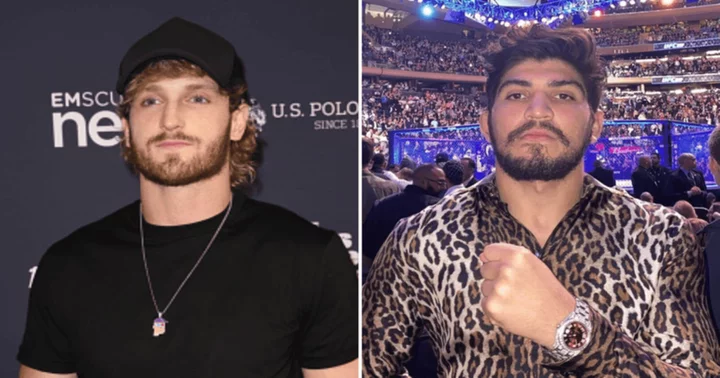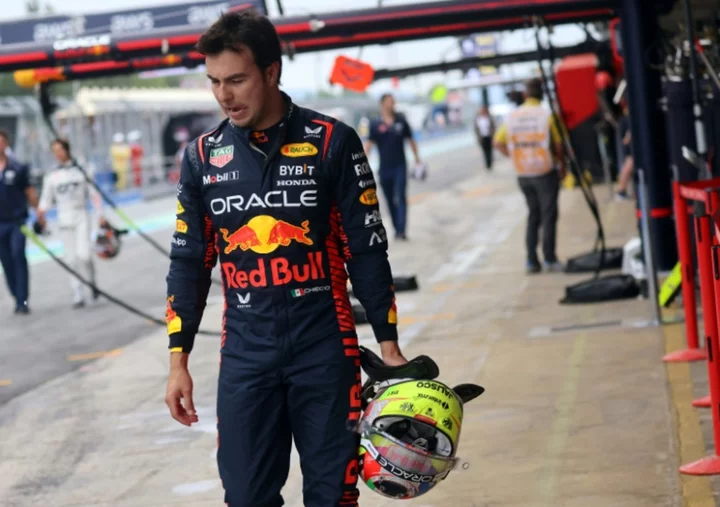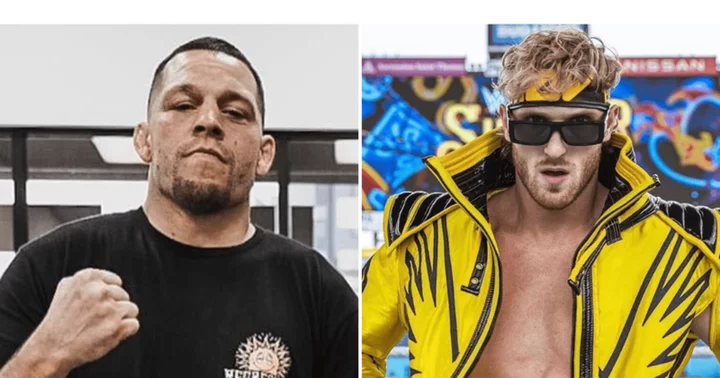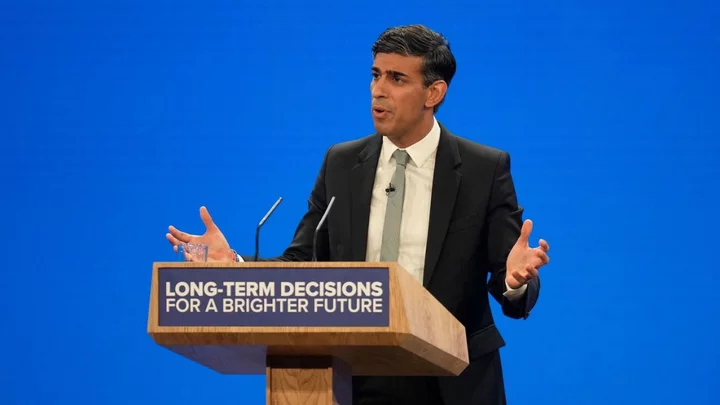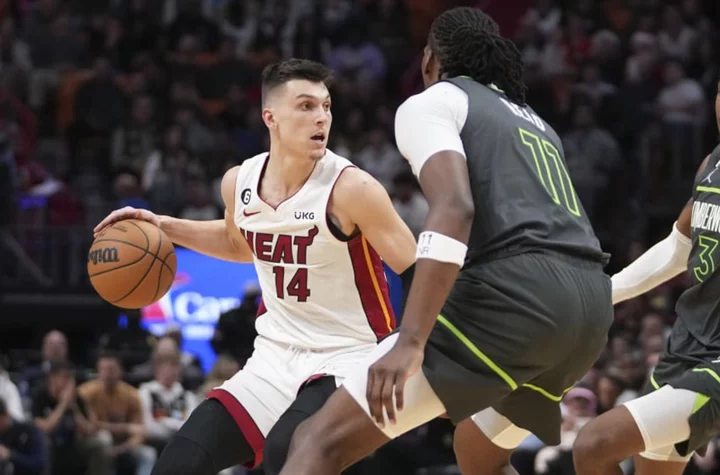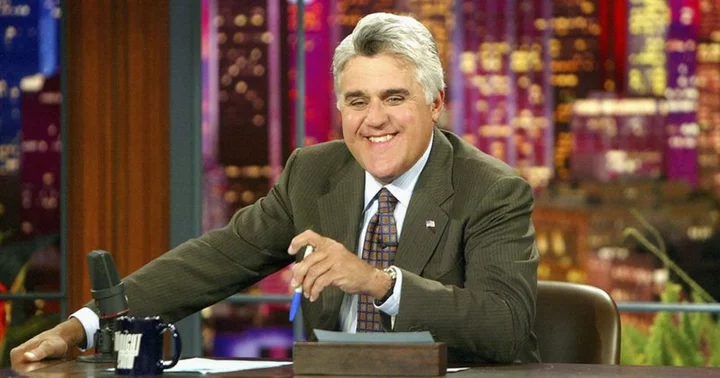Which team has the best front office in all of MLB?
There is nothing baseball fans like to complain about more than a team's front office. From not spending enough on payroll to not signing or trading for a fan favorite to just "not doing enough", front offices often bear the brunt of baseball fan criticism whether it is fair or not.
However, how much of that is actually fair criticism? Are the front offices that get flamed the most actually the worst? Which ones are actually the best despite what the insufferable internet trolls say? These are the questions we will endeavor to answer here.
Here is our completely not scientific and very subjective ranking of MLB front offices from worst to first. If we ranked your team on the lower end, yes…it is probably because we hate your team(s). If we ranked them highly, don't worry…we probably still hate your team(s). We are also going to note each team's general manager, but it is worth mentioning here that some teams have different decision-making structures with guys above that title being the actual decision-makers and we will note those as we go along here. Let's get into the rankings.
MLB Power Rankings: Best and worst front offices
30. Rockies
General Manager: Bill Schmidt
The bottom of the list is tough here because how does one weigh front offices that are willfully fielding a bad team for financial/draft purposes vs. teams that can't seem to do anything right even when they try. We are going with the Rockies here because they offer a nice variety of a bad roster, inept drafts, trades with terrible returns, miserly ownership, and little hope in sight for the future as the team fails to adapt to the modern game of baseball.
This is the same team that traded Nolan Arenado, a perennial MVP candidate, away for essentially nothing and then turned around and signed the ghost of Kris Bryant to a seven year, $182 million deal when no one thought he was going to get close to that. This is a systemic failure from top to bottom and every season the Rockies find new lows to reach.
29. Athletics
General Manager: David Forst
It is hard to see the Athletics fall this far because of the work that Billy Beane used to do with very, very limited resources to still put competitive teams on the field. However, Beane isn't running the day-to-day operations anymore and Oakland's ownership has begun a truly embarrassing process of forcing their way into a move to Las Vegas. The front office has torn the roster down to basically nothing, the stadium is essentially rotting away, and they are well on their way to posting the worst record in the entire league by a wide margin.
Arguably the worst part is that Oakland's fire sale hasn't actually yielded any real building blocks for the future with the notable exception of claiming Brent Rooker off of waivers as he has turned into a monster this season. When this team does move to Vegas, they are still likely to be bad for a long time without big, big changes.
28. Pirates
General Manager: Ben Cherington
Cherington actually seems like a guy who wants to do a good job as general manager and there is some real talent in their farm system as a result. However, Pirates owner Bob Nutting is so cheap and so intent on milking every single cent out of the club without actually investing in the roster that it feels like that will override any progress Cherington makes and history proves that out.
The team will seemingly never be in play for any free agents outside of the bargain bin and as soon as players start playing well-enough to make anything resembling decent money in arbitration, the Pirates have to trade them away because ownership wants to line their pockets. After surprisingly extending Bryan Reynolds recently, Nutting did make comments that he is open to locking up this young core of players, but frankly we will believe it when we see it.
27. Reds
General Manager: Nick Krall
The Reds certainly belong near the bottom of these rankings if, for no other reason, being that their owner both has no interest in spending what is required to field a competitive team and has publicly stated that he knows that Reds fans have no other option other than to just deal with how he runs things. On top of that, the front office has failed to field a decent team in recent years despite multiple trades and drafts that SHOULD have helped more than they have.
That said, the minor league system has some real talent especially if Elly de la Cruz pans out, so not all is lost here. The Reds' ownership situation just limits their upside so much and nothing indicates that the rest of the front office can compensate for that. In a good year, the Reds can be a .500 team and that says a lot.
26. Royals
General Manager: J.J. Picollo
The Royals were the poster children for stubbornly adhering to outdated thoughts on the game of baseball under Dayton Moore and it is decidedly unclear if things are going to improve under JJ Picollo. The payroll remains small, the team has made decidedly few moves to improve a roster that ranges from young to bad, and their recent drafts have been shallow in terms of talent with the exception of Bobby Witt Jr.
A cursory look at the Royals' farm system sure doesn't look like the farm system of a team that has picked in the top 10 the last four years and they have been particularly bad at getting talent out of international free agency which is not a way to run a franchise.
25. Tigers
General Manager: Scott Harris
Also residing near the bottom of our front office rankings are the Detroit Tigers. Tigers owner Mike Illitch famously spent a bunch of money and resources chasing a ring, but how things have been run under his son, Chris, after Illitch's death back in 2017 has been a far cry from that. In fact, it seems more like the last thing that Chris wants to do is run a baseball team, but here we are.
There is some young talent on the roster and in the farm system thanks to Tigers' draft position the last several years, but the team's first crack at rebuilding stalled out and without some savvy moves and actual investment in the roster (which seems unlikely), the Tigers are going to struggle to realistically contend again.
24. Marlins
General Manager: Kim Ng
Whoever has owned and/or run the team, the Marlins have been perennially choked for payroll space, but it isn't like Miami GM Kim Ng's front office has done much to improve things in her short tenure so far. Generally speaking, the Marlins' attempts at short-term, cheapish deals have yielded very little on the field especially on the offensive side of the ball and that is a problem for a team that is never going to be able to spend very much.
That said, what keeps the Marlins out of the cellar is that they do appear to be assembling a very formidable young pitching staff and they were smart enough to give an extension to Sandy Alcantara. The Marlins aren't likely to be legitimately good for a while as they aren't quite savvy enough in player acquisition to maximize their money and there isn't enough offensive help coming down the pipeline, but they at least have a chance to make games interesting.
23. Angels
General Manager: Perry Minasian
There is a good chance that this ranking will look like a reach in a couple years, but we are gonna give Minasian the benefit of the doubt given that he was likely hamstrung by the Angels being kinda sorta for sale before changing their minds for some reason. Plus, the Angels' issues are very long-built as his predecessors failed to have much interest in building a pitching staff (or a team for that matter) beyond "here's hoping Mike Trout and Shohei Ohtani are enough".
Minasian was highly regarded around the league before his arrival in LA and it does seem like there is help coming for the pitching staff down in the minors. Ultimately, the front office will be graded (and probably rightly so) on how they look after Ohtani's free agency saga concludes and if they can continue to improve the big league roster, but there is at least some cause for optimism here.
22. Diamondbacks
General Manager: Mike Hazen
The Diamondbacks have been a mixed bag ever since Hazen took Arizona's GM job back in 2016. The bad news is that Hazen's ability to sign free agents that help the club has been virtually non-existent and giving Madison Bumgarner $85 million when the prevailing (and correct) wisdom was that he was close to being washed loses him a bunch of points here.
On the flip side, the Diamondbacks have done well building a strong talent pipeline as Corbin Carroll looks like a future (and maybe current) star and top picks Jordan Lawlar and Druw Jones have loads of upside. Arizona was also smart enough to trade for Zac Gallen back in 2019 and he looks like to be one of the best pitchers in baseball. A lot has to go right for Arizona to be good, but they at least have given themselves some chances to make it happen.
21. Rangers
General Manager: Chris Young
The Rangers are pretty much all in at this point and the first wave of that payroll push ended up costing former GM Jon Daniels his job. However, it does look like the front office correctly understands that you have to build real pitching depth to be successful as they not only signed Jacob deGrom and Nathan Eovaldi, but have built a nice stable of arms in the farm system with Jack Leiter, Kumar Rocker, and Brock Porter.
It is nice to see the team willing to spend on the roster, but giving the injury-prone, but awesome when healthy deGrom as much as they did combined with the failure to address some holes on the offensive side of the ball and the bullpen despite having so much invested in the present keeps them down here for now. They could jump up with some sound decisions in the near future, if things work out, so folks should keep an eye on them.
20. Red Sox
General Manager: Brian O'Halloran
O'Halloran has the GM title, but this is Chaim Bloom's team and he was very clearly on the hot seat coming into the season. On the plus side for Bloom and co., the team very nearly made the World Series in 2021 and have a winning record so far this season. The Kenley Jansen signing has worked out quite well and adding Masataka Yoshida has shored up the outfield with real production for the foreseeable future.
The downsides are real, though, as the departures of both Mookie Betts and Xander Bogaerts did not go well and his draft classes have been decidedly not deep whatsoever. Extending Rafael Devers helps Boston's cause, but there are still too many holes on the roster and too much uncertainty to rank them any higher.
19. Astros
General Manager: Dana Brown
This is betting a bit on projection here as the Astros' front office situation was a mess beforehand thanks to the meddling of owner Jim Crane leading the team to losing a good general manager in James Click. However, hiring Dana Brown, one of the best GM candidates on the market, was a strong move and should pay dividends in the future as Brown's drafts when he was with the Braves always yielded talent even beyond their day one picks.
How Brown fills out his front office over the next year or so as he settles into the job and whether or not he can pull off extensions to key players like Kyle Tucker and Framber Valdez (or at least replace them with comparable talents) will matter a great deal. Unfortunately, it will be hard to rank much higher than this as long as Crane is the owner and he continues to insert himself in decisions.
18. Brewers
General Manager: Matt Arnold
Arnold has not been on the job for long as David Stearns was in charge before he stepped down after the 2022 season (the stated reason was he needed a break, but a lot of folks think he wants to move on to another organization in the near future). However, he somehow managed to insert the Brewers into the deal that snagged Milwaukee William Contreras in the deal, sent Sean Murphy to the Braves and netted the Athletics…well, not much.
Arnold is expected to trim payroll and keep the team competitive which is easier said than done, but they do at least have a strong farm system to help the cause and they are currently at the top of the NL Central (as of 5/17 anyways). However, the team's relationship with Corbin Burnes was hurt with how things were handled during his arbitration, so it is worth monitoring how the front office handles things going forward.
17. Nationals
General Manager: Mike Rizzo
Mike Rizzo and the rest of the Nationals' front office is an example of one that can do a lot of good work when contending and given basically limitless resources, but as soon as guys get older and things start waning, the decision-making becomes a lot more suspect. There are also the deals given to Patrick Corbin and Stephen Strasburg that have basically ruined Washington's payroll in the near-term.
That said, the Nationals' farm system does have a lot of talent especially on the position player side, so all is not lost. However, the Nationals' rebuild still looks like it is going to take a while and with the team very likely to be sold in the near future, things could change in a hurry in DC for better or worse.
16. Orioles
General Manager: Mike Elias
The squabbles amongst the Angelos family regarding the team's ownership provide important context for the Orioles' current situation, but GM Mike Elias appears to have done really well to navigate a bottom of the scale payroll and the ownership drama. The team has one of the best young cores in all of baseball with Adley Rutschman and Gunnar Henderson and with more help on the way in the farm system.
To rank higher, Elias is going to have to get the freedom to make real free agent signings to bolster the roster and be real participants in international free agency instead of just hoping they continue to draft well, but progress is being made to be sure. At present, they just don't have much room for error and unless Elias can transform the Orioles into a Rays-type operation, he is gonna need some more resources to make it happen.
15. Cubs
General Manager: Carter Hawkins
Tearing down the Cubs roster over the last couple of years to cut payroll hasn't felt great, but Jed Hoyer (who is the real decision-maker here) has done pretty well to make the roster look more like a quick reset instead of a complete teardown. They gave an extension to Ian Happ, signed Dansby Swanson to a long-term deal, and have some real young talent both on the big league roster as well as in the minor leagues.
The pitching staff is a weak point at the moment and it is legitimately unclear if ownership is going to let the team spend enough to be consistent contenders again, but there are enough signs that Hoyer may be up to the task to keep them in the middle of the pack for now.
14. Giants
General Manager: Pete Putila
This is Farhan Zaidi's team and you can add him to the list of guys who are running out of time to turn things around. On the one hand, the baseball operations side of things seems to run well as the Giants do seem to get a lot out of the pieces that they do have on the field, and extending Logan Webb was a big win. The front office also does seem to be willing to spend real money to improve the roster.
The problem is that while they have had some success on some short-term deals (Kevin Gausman and Joc Pederson come to mind), but Zaidi has not been able to attract big name free agents to San Francisco despite a willingness to pay up (with the notable exception of Carlos Correa whose physical quashed that deal). Plus, the Giants' farm system is not in a great state at the moment. If Zaidi can't make the most of this season and the upcoming trade deadline, San Francisco's front office could fall down this list in a hurry.
13. White Sox
General Manager: Rick Hahn
The White Sox are one of the bigger disappointments in the league this year as they are closer to the bottom of a pretty tame AL Central than they are to the top. On the surface, though, this is a roster that has some real talent on it and the White Sox were on the come-up before this disastrous start to the 2023 season thanks to largely good work by Rick Hahn and the rest of the front office. The Tony La Russa experiment at manager was a true disaster to be sure, but all indications are that that call came from owner Jerry Reinsdorf despite pushback from the front office.
While we aren't going to dock them too much for that because TLR was out of the front office's hands, not having a front office that is able to save meddlesome and ill-informed owners like Reinsdorf from themselves is a problem in itself. The White Sox will probably be fine, but there is less cause for optimism than there was a year or two ago.
12. Twins
General Manager: Thad Levine
We have to give some love to teams like the Twins that are in smaller markets but still find ways to make splashy moves and push the boundaries of their budgets to try and win. Derek Falvey and Thad Levine haven't usually pushed to be involved in every big name free agent out there, but they manage to make one or two moves for impact players each season, which is certainly not nothing. Not to mention, their farm system is in a pretty good spot at the moment.
The results have been mixed, though, as the Josh Donaldson signing certainly didn't work out as well as they hoped (although they did well to get out from under that deal) and the Carlos Correa deal could end up poorly if Correa's previous failed physicals and poor start to 2023 end up being issues long-term. However, that the Twins were able to even bring back Correa as well as extend Byron Buxton — and added several players that gave the Twins one of the better pitching staffs in the league at the same time — is a testament to some strong, if limited, work in the Twin Cities.
11. Mets
General Manager: Billy Eppler
Mets fans are going to (maybe?) be mad at being this low, so let's get this out of the way: having an owner with such deep pockets solves a lot of inadequacies with one's front office. The Mets are aggressive and are clearly making moves to try and win a World Series sooner rather than later which should be applauded. Also, there is some talent down in the minor leagues on the position player side even if a lot of their top prospects have some warts to their game.
The problem is that with all of the turmoil in that organization, it seems decidedly unclear if the Mets' seemingly endless resources have been spent wisely. Bringing back Nimmo seems like it was a good investment, but throwing a bunch of Cohen's money at aging stars hasn't gotten the job done as the Mets are off to a rough start in 2023. To crack the top 10, the Mets need to be making better baseball and roster decisions and not just hope that the endless money well will be enough.
10. Guardians
General Manager: Mike Chernoff
It wasn't that long ago that many thought that the Guardians were destined to plummet to the bottom of their division due to the organization's unwillingness to commit real money to their payroll and keep their talent in the fold. Francisco Lindor comes to mind here and, in fairness, some of those fears have been justified as the Guardians have not really spent much nor is it likely that they will be players for the big time free agents. Their track record with developing offensive players is also decidedly mixed, although some trades for prospects helped their cause as there are some success stories there.
The one thing they have done and continue to do is develop pitching and they probably do it better than anyone else. That solves a lot of ills when it comes to payroll and roster construction. Chris Antonetti is calling the shots here and it will be interesting to see how he handles this exciting young core they have in Cleveland right now. Extending Jose Ramirez was a very good start, but this front office's upside is capped unless they are willing and able to at least lock down some of these young guys for longer than their arbitration eligibility.
9. Mariners
General Manager: Justin Hollander
Justin Hollander may be the general manager, but this is Jerry DiPoto's team and he calls the shots. DiPoto was well known for being a guy that is willing to wheel and deal and would trade his grandmother if he could get a comp draft pick back in the deal. Sometimes that has led to less-than-desirable results and many thought that he was guilty of overdoing it at times.
However, present day DiPoto has been decidedly more reserved. The Mariners have one of the most exciting young teams in all of baseball with guys like Julio Rodriguez, Cal Raleigh, Logan Gilbert, and George Kirby. DiPoto already locked up Julio to an extension and it looks like he is trying to do so with others to keep costs controlled and fill the roster with high end talent. The Mariners' current farm system is meh and some of DiPoto's moves could go either way, but overall the Mariners' front office is in good shape.
8. Cardinals
General Manager: Michael Girsch
The Cardinals seem to always field a good team under president of baseball operations John Mozeliak. To make improvements to the roster, Mozeliak has generally added players via trades and, if they were deemed worthy, given extensions once they were in the fold. The trade for Paul Goldschmidt and the complete fleecing of the bottom-ranked Rockies for Nolan Arenado come to mind here. St. Louis will spend a bit, but they are never among the top payrolls and rely instead on a steady pipeline of homegrown talent and savvy trades to get things done.
That has been good enough for the most part, but flaws in their execution have been exposed in 2023 as the Cardinals have gotten off to a terrible start to the season with loads of drama surrounding Willson Contreras and questions about Oliver Marmol's viability as a manager being among the storylines this season. The reality is that the Cardinals got old and reliant on a few key pieces that are either gone (Yadier Molina) or aren't up to the task anymore. There is some talent in the Cardinals' farm system, but they need to hit on some of these pitchers soon as the pitching staff is in a bad spot. At the very least, they need to trade some prospects for some help in the rotation because things as they stand aren't sustainable.
7. Phillies
General Manager: Sam Fuld
Dave Dombrowski is the man behind the curtain for the Phillies and he is quite good at his job when he is given a lot of resources including trading away any and all prospects for immediate big league help. Dombroski is a win-now baseball executive and over the course of his career, he has been able to accomplish a lot, although he generally leaves organizations as soon as their playoff windows close as he does not excel in rebuilding environments whatsoever.
There is something refreshing about a guy like Dombrowski who is unabashed in his pursuit of star players with name recognition. The Phillies nearly won a World Series title last year and Dombrowski proceeded to bring in Trea Turner to add to that roster. The issue here is that while the aggression is nice in the short-term, it isn't sustainable as the Phillies are not particularly good at developing players. Andrew Painter looks like he will be a stud if he is healthy, but the rest of the system isn't all that exciting. The Phillies' money will solve some of those problems, but at some point the Phillies stars will age out and when that day comes, we have decidedly less confidence that Dombrowski will be able to piece things together.
6. Yankees
General Manager: Brian Cashman
Brian Cashman is a polarizing figure both amongst Yankees fans and league wide and, frankly, we get it. Followers of the Yankees were used to George Steinbrenner's 'win at any cost' approach to roster building and nowadays, the Yankees have a more restrained approach to player acquisition as owner Hal Steinbrenner is much less willing to spend wildly like his dad was. Moreover, Cashman has had some notable misses on moves (Jacoby Ellsbury and DJ LeMahieu come to mind) which is less than ideal.
However, the Yankees under Cashman have remained among the bigger spenders in the entire league each season, field a competitive team every year, develop homegrown talent reasonably well, and will lock in talent on long deals like the one Aaron Judge signed his past offseason. The Yankees' front office is far from perfect, but generally speaking they do a good job at balancing being aggressive with keeping an eye to the future in a market that can often unreasonably expect World Series titles every single year.
5. Padres
General Manager: A.J. Preller
AJ Preller is another guy who has historically never found a trade that he didn't like and is among the most aggressive GMs on this list on a number of fronts. San Diego is just a fun story about a team that has shown that you don't have to be from a top-3 media market to spend big in free agency and be aggressive in trading for stars like Juan Soto.
Preller's approach has had some warts, though, as the Padres' player development arm hasn't been as good as you would think. Despite having an All-World farm system for the first few years under this front office, San Diego ended up having to trade away a lot of those guys to help the big-league club when the youth movement outside of guys like Fernando Tatis Jr. and Jake Cronenworth didn't develop and improve like many thought they would. San Diego still did a good job in getting value back for those prospects by staying aggressive, but we would prefer fewer misses on guys that were considered top-end amateur talents.
Braves general manager Alex Anthopoulos (Photo by Adam Hagy/Getty Images)
4. Blue Jays
General Manager: Ross Atkins
The Blue Jays are in a tough position each and every year as they play in one of the hardest divisions in baseball against some of the biggest spenders historically in the Yankees and Red Sox, and probably the most efficient front office in the Rays (more on them in a bit). However, despite that, Toronto has remained competitive thanks to a strong player development department that helped assemble one of the best young cores in baseball, and savvy signings and trades for guys like Kevin Gausman, Robbie Ray, Matt Chapman, and George Springer.
The Blue Jays just do a lot of things right, but there have been some misses. The Hyun-Jin Ryu contract is looking like a sunk cost and Jose Berrios has been meh and certainly not worth the $131 million the Blue Jays invested in him so far. Toronto's farm system is also not in the best of places at the moment after a series of trades and promotions depleted their ranks. As a result, it will be interesting to see if Toronto ends up having the financial and prospect resources necessary to maintain the run that they are on going forward, but we like their overall approach.
3. Rays
General Manager: Peter Bendix
The Rays are a unicorn in the game of baseball. Their revenues and payroll are near the bottom every single season. Some of that is because of an owner with a tight grip on their wallet and some of that is because we have yet to see a team in the state of Florida supported by fans there. However, despite all of the headwinds, the team is good nearly every single season thanks to really, really strong work at acquiring amateur players and developing the crap out of them.
Every season, the Rays have an exciting young team and an endless supply of top-end prospects waiting to fill the ranks when needed. The front office knows which of their prospects they can afford to lose in trades and REALLY know the diamonds in the rough in other teams' farm systems that they want to acquire. On getting the best bang for their buck, the Rays are a clear No. 1, but their inability/unwillingness to spend to keep players long-term and make free agent signings keeps them out of the top two despite the respect we have for what they had done with very limited resources.
2. Dodgers
General Manager: Brandon Gomes
When the Dodgers managed to snag Andrew Friedman away from the Rays, they got one of the finest minds in any baseball front office and it has paid dividends for them. The Dodgers have long had loads of money to play with, but did not always spend it wisely before Friedman arrived. Since he took over as their chief baseball executive, he turned the Dodgers into a perennial powerhouse that are almost always among the World Series favorites each and every year.
Not only has the team drafted well and remained active in the international market, but Friedman has also been responsible for bringing Mookie Betts, Freddie Freeman, Trea Turner, and Manny Machado among others during his tenure. The Dodgers are also rarely beaten in a trade with the move that sent Yordan Alvarez to Houston being a notable exception. Being quiet this past offseason did not help their case, but if it sets them up to be extra active this coming offseason especially with Shohei Ohtani presumably hitting the free agent market, then they will stay at or near the top of the rankings.
1. Braves
General Manager: Alex Anthopoulos
What is else is there to say about the Atlanta Braves under Alex Anthopoulos? All this front office does is make tough decisions and end up on the other side of them better for it. This is the most exciting young team in all of baseball and AA has been very aggressive in locking up a big portion of the roster on mostly team-friendly, long-term deals that have the Braves poised to be really good for a long time with guys like Ronald Acuña Jr., Austin Riley, Spencer Strider, and Michael Harris II in the fold.
One fair criticism of Anthopoulos was that he hadn't been aggressive on the trade market with the cache of prospects at his disposal. Those criticisms were quashed in the trades that brought Matt Olson and Sean Murphy to the Braves and both of those players are set to be key pieces for Atlanta for a long time. Losing Freddie Freeman and Dansby Swanson to free agency was tough and time will tell if the Braves were right to stick to their guns on their prices for both of those guys. Max Fried's upcoming free agency will be a big test as well given the uncertain state of the Braves' future rotation, but our guess is that the Braves will end up just fine either way.

